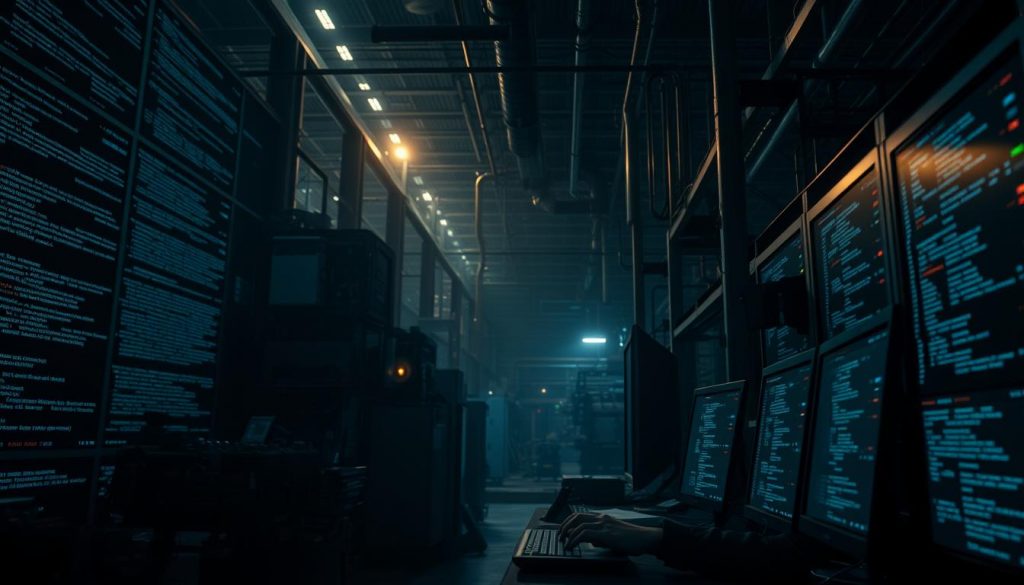What happens when a single cyber-attack freezes just-in-time production across an entire industry?
At the end of August a cyber incident halted jaguar land rover production and shut key IT networks. Factories in Solihull, Halewood and Wolverhampton stand idle until at least 1 October, with disruption possibly stretching into November.
The shock has quick, system-wide consequences for an integrated automotive ecosystem. Around 30,000 people work directly for the carmaker, with about 100,000 in its wider supply chain and a further 60,000 reliant on that spending. Small firms face severe cash-flow pressure from paused daily call-offs, highlighting vulnerabilities in the manufacturing industry news.
Ministers have visited the West Midlands as concern grows for fragile suppliers. This story sits at the intersection of uk economy news, automotive industry news and latest cyber security updates, with the government closely monitoring the situation.
At its core lies a policy test: might the state act as a buyer of last resort for critical components, or should targeted loans and furlough-style support lead the response? The answer will shape whether businesses can survive the shutdown and whether a restart becomes simpler or harder.
Key Takeaways
- A cyber-attack has paused jaguar land rover production and frozen just-in-time schedules.
- About 30,000 are directly employed, with roughly 100,000 in the supply chain affected.
- Small manufacturers face urgent liquidity risks if call-offs remain halted.
- Options include acting as a buyer of last resort, targeted loans or income support.
- Failure of tiered suppliers could complicate any restart and raise wider costs.
The Cyber-Attack That Stalled JLR’s Production
An unauthorised intrusion on 31 August halted digital systems and paused vehicle assembly at several sites.
What happened on 31 August: IT shutdown and production freeze
On 31 August a targeted cyber attack forced a rapid isolation of core IT systems. The company cut networks as a precaution to protect data and operational control.
That isolation stopped just-in-time schedules and brought line feeds to a halt. Teams were told to bank hours while engineers and external specialists worked on remediation.
Where production is paused: Solihull, Halewood and Wolverhampton plants
Operations across Solihull, Halewood and Wolverhampton remain paused. Typical output at these jlr plants is roughly 1,000 cars per day, now forgone while systems stay offline.
How long could the shutdown last: at least until 1 October, with disruption potentially extending further
The company has stated no restart before 1 October, with internal sources warning disruption could stretch into November. Losses are running into tens of millions per week.
National cyber agencies are supporting incident response, and ministers visited the region to review recovery plans. As told bbc and discussed on bbc radio, officials favour a cautious, staged return while forensic checks continue.
- Containment: networks isolated immediately.
- Impact: roughly 1,000 cars per day lost at affected plants.
- Response: national agencies and on-site teams guiding remediation.
| Site | Typical output (cars/day) | Status |
|---|---|---|
| Solihull | ~350 | Paused |
| Halewood | ~300 | Paused |
| Wolverhampton | ~350 | Paused |
The Domino Effect on the UK Automotive Supply Chain
Small makers at the bottom of a sourcing ladder in the manufacturing industries in UK face the quickest pain when daily orders stop.
From tier one down to tier four, integrators depend on a lattice of smaller firms that deliver parts every day within the supply chain. Many of these micro- and small businesses run on thin margins and tiny cash buffers. When call-offs pause, receivables dry up while bills for wages, rent and energy keep arriving, highlighting the urgent need for government support.
For more details, see the Guardian’s full coverage of this report.

A former quality engineer noted that a dashboard may use hundreds of parts from up to 20 suppliers. If a £1 tier four component maker fails, a single car build can stop until a new vendor is audited and tooled.
Unite has reported workers on reduced or zero pay and told to seek welfare support. Politicians and union leaders warn that a shutdown extended beyond weeks raises real risks of layoffs and insolvencies across the firm supply chain.
- Regional impact is concentrated in the west midlands and Merseyside, where many companies rely on daily orders.
- SMEs’ access to bridging finance is uneven; without timely help, some firms may close permanently.
- Every lost supplier increases restart costs, creates bottlenecks and risks quality issues for car production.
What was told bbc and aired on bbc radio shows officials are collating data so any support — from a targeted furlough scheme to emergency credit lines — can reach the right people and businesses quickly.
Could the UK Government Buy JLR Parts to Protect Suppliers?
Ministers and industry leaders have been weighing a hands-on market intervention that would keep cash flowing into fragile workshops.
How a “buyer of last resort” model might work in practice
A buyer-of-last-resort would mean a public body paying for critical components or finished modules that cannot reach assembly lines. Payments would give immediate liquidity against future delivery and keep payrolls moving.
Mechanically, eligibility would be limited to approved firms with documented exposure. Valuation would use pre-incident pricing and items would be stored until reconciliation after production restarts.
Alternatives on the table: targeted loans, furlough-style support and industry-led assistance
Stakeholders have suggested time-limited loans, a called furlough scheme for supplier staff and pooled industry funds. Each option focuses on fast relief while avoiding long-term market distortion.
“It is really important that solutions are tailored and led by business,” an industry minister said after meeting manufacturers.
- Benefits: prevents insolvency, saves skilled jobs and eases restart frictions.
- Risks: storage costs, quality checks, moral hazard and supply-market distortion.
- Hybrid: guarantees for bank lending plus a narrow purchase scheme for critical inventory.
The business secretary has prioritised a safe, speedy return to production while officials gather information on where liquidity would most help. Any scheme must be time-limited and closely targeted so businesses regain normal trading quickly.
Challenges, Risks and a Pivotal Moment for UK Industry
This disruption is a test of resilience for advanced manufacturing and supply networks across regions such as west midlands.
Cyber resilience and latest manufacturing technology: lessons for British industry
Ministers visited Gaydon and local supplier sites to gather first-hand information. The industry minister warned firms to behave as if they face persistent cyber threats and urged faster investment in detection and response, particularly in light of the latest cyber security news affecting the supply chain.
Core lessons include strict segmentation of factory networks, disciplined backup and recovery plans, and routine incident simulations. These steps reduce restart time and limit spread when an attack hits.
Modern plants mix operational technology with IT. It is really important to harden legacy equipment interfaces and adopt zero-trust access across suppliers and OEMs. Digital twins and secure remote monitoring can help plan safe restarts after a shutdown.

Policy interventions carry risks: crowding out private solutions, setting hard-to-reverse precedents and creating moral hazard. Any state-backed scheme must include sunset clauses, tight eligibility and clear governance.
“It is really important that solutions are tailored and led by business,” mcdonald said after meetings with executives and workers.
- Assume persistent threats; keep patching, control access and invest in response teams.
- Regional collaboration in the west midlands can share expertise, audits and mutual aid.
- A flagship company such as jaguar land rover faces reputational risk but can also drive faster upgrades across industry.
Messages told bbc stressed urgency without panic: maintain recovery momentum while strengthening cyber defences so future shutdowns are shorter and less damaging.
Conclusion: Could the UK Government Buy JLR Parts to Protect Suppliers?
Decisions in coming days will shape whether , suppliers and workers weather this shutdown.
Stabilising the supply chain now saves time on restart and shields jobs in local communities. A targeted buyer-of-last-resort is one option among loans and a carefully scoped furlough scheme that keeps payrolling for hours lost.
Any scheme must have clear eligibility, tight governance and rapid delivery so businesses and people get support without long-term market distortion. Preserving continuity at jlr plants limits further production losses measured in thousands of cars and protects regional economies.
Ministers and industry leaders must act fast and use available data. Firms should use this pause to harden cyber defences and contingency plans. Jaguar Land Rover will recover; the wider chain depends on choices made now for suppliers, workers and companies in the firm supply chain. Stakeholders told bbc and on bbc radio that speed must be balanced with accuracy.
For the Latest Automotive News articles, please follow the link.


